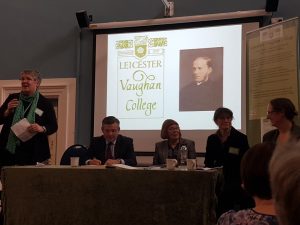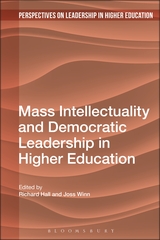In part because I am working on a book on academic alienation, and in part because this week has focused upon the relationship between alienation, overwork, illness and well-being ill-being, the damaging effects of academic labour on both the academic Self as s/he becomes a self-exploiting entrepreneur, and on her humanity as a species-being, have been live for me. I’ve written about this over at WonkHE in terms of academic ill-health. However, more theoretically this might be situated in the relationship between Hegel’s work on particularity and universality, and extended through a more dialectical focus on the internal relations that reveal our subjectivity. Here the realities of an academic life framed by the violence of abstraction are laid bare:
This example of labour shows strikingly how even the most abstract categories, despite their validity – precisely because of their abstractness – for all epochs, are nevertheless, in the specific character of this abstraction, themselves likewise a product of historic relations, and possess their full validity only for and within these relations. Marx, Grundrisse.
I wrote previously how this violence of abstraction leads to a sense of academic hopelessness or academic world-weariness. I have developed this into an article for tripleC on the alienation of academic labour and the possibilities for mass intellectuality. One of the sections of my draft, which I shortened in the accepted version was on weltschmerz, a world weariness that lies beyond anxiety, anguish or ennui, and which perhaps reflects a deeper sense of hopelessness about the academic project. Increasingly, in line with Marx’s focus on subjectivity in the Economic and Philosophical Manuscripts of 1844 and the German ideology, I view the importance of this in terms of what it reveals about the particularity of the Self and the universality of the individual as a species-being in the current crisis of capitalism.
What is this world of capitalist work doing to us and can we imagine anything different? The issue, of course, is how to see this as a dynamic process, in order to move beyond alienation, hopelessness, world-weariness. I have reproduced the original section on weltschmerz, below.
Increasingly, academics face an intense sense of weltschmerz; a world weariness that lies beyond anxiety, anguish or ennui, and which perhaps reflects a deeper sense of hopelessness about the academic project. This is a recognition that the world once hoped for may never be, and that the concrete world now abstracted for value may never embody our deeper humanity. In fact, in our abstracted world such hopelessness is connected to a loss of autonomy/freedom that is itself rooted in the inability to escape from capital’s domination. Much worse is the fact that the cultural terrain upon which capital works reinforces within us a sense that we are not productive enough, and that this is a sin (Jappe 2013, Kierkegaard 1981). Moreover, our life choices emerge inside a system of structural domination that increasingly alienates us both from ourselves and from our place in the social and natural world.
In response to the revelation that under austerity, academic labour is increasingly a site of alienation, new ideas of good/public and bad/private are projected onto the University (Campaign for the Public University (CPU) n.d., Council for the Defence of British Universities (CDBU) n.d.). It is hoped that the idea of the public good of HE can be recovered against the market. Inside the politics of austerity, academics can either incorporate performativity and control, or internalise the loss of what they hoped the university might become. However, this risks the development of a new depressive position through which despair restricts autonomy and where the overwhelming feeling is one of hopelessness. Addressing such a depressive position requires a different level of grief and mourning to be internalised, so that academics can address their alienation and lack of autonomy in an authentic manner, and in relation to wider society.
The critical issue is that academic alienation is rooted in enforced compliance and coercion, and in a refusal to locate solidarity across a wider social terrain (The Institute for Precarious Consciousness 2014). Instead of loss or grief, competition and entrepreneurial activity are internalised (Kelman 1958), and the induced behaviour is made congruent with the inner, academic self through the signalisation and dressage of performance management (Foucault 1975). As a result, refusal or mourning reflect the incongruence between performance management and a deeper set of personal, educational values.
Our hopelessness is rooted in the academic’s apparent loss of her labour, as it is brought into the service of value. Marx (1844) knew that this is the logic of capitalism that defenestrates labour, in order that it can accumulate autonomy:
Is then only the semblance of an activity, only a forced activity, imposed upon me only by an external and accidental necessity and not by an internal and determined necessity… My labour, therefore, is manifested as the objective, sensuous, perceptible, and indubitable expression of my self-loss and my powerlessness.
Such powerlessness is a reflection of how social or communal spaces, places, identities, and relationships are all means of extracting value or hoarding private wealth. Moreover, with the formal subsumption of higher education under capitalist social relations, this sense of hopelessness is reinforced as we witness just how far the limits to our alienation from space, society and nature can be pushed. As Berardi (2009, 73) argues:
To be recognized in the networked universe one must become compatible with the generative logic of the matrix. What does not belong to a codified domain is not socially recognizable or relevant, although it still exists in the domain of irrelevance, of residuality. It then reacts with rage and despair, in order to violently reassert its existence.
For academics, this is the alienation and subsequent hopelessness of intellectual dispossession that Stiegler (2010, 125-126) argued forms a
toxic economy of regressive tendencies, implemented by consumerism exercising the psychopower of its cultural hegemony through the intermediary of psychotechnologies, in this way controls the becoming of individual and collective behavior, as well as the dynamic processes of the technical system.
Our atomisation and automisation cannot enable liberation, agency or the reassertion of academic autonomy. The technological system that valorises capital itself co-opts and reproduces social relationships that it then attempts to modify or destroy. We are constantly torn between social (re)combination and individual atomisation/entrepreneurialism. The social relations of production extend their domination beyond the space-time of our work, into the space-time of our life, in order to occupy and valorise humanity and kindness. Control enacted through the internalisation and adoption of automatic operational systems forces us to incorporate negative internal objects. The anxieties of capital as a machine, and the anxieties of the University as a node in our machinic whole, are incorporated and projected onto others.
What this entails for the academic/student is an end to self-care; of hopelessness in the face of overwhelming odds; of the apparent impossibility of scaling-up kindness. This demands a culture of omertà, or the silence of those in the know, who must co-operate even as they compete, and thereby generate complex inter-relationships rooted in uncertainty and anxiety (Hall and Bowles 2016). The question is how to negate rather than accept the basis of domination, through the academic fails to realise her potential for happiness. Is it possible to define a new form of sociability? For Marx (1844/2014, 82), this reveals the tensions between marketised, economised existence that is predicated on the ‘increasing value of the world of things’ at the expense of the ‘devaluation of the world of men’. The questions are whether that world can be superseded across the social factory (Federici, 2012), and what is the role of the university in that overcoming?
References
Berardi, Franco. 2009. The Soul at Work: From Alienation to Autonomy. Translated by Francesca Cadel and Giuseppina Mecchia, with preface by Jason Smith. Los Angeles, CA: Semiotext(e).
CDBU. 2017. Council for the Defence of British Universities. Accessed April 10, 2017. http://cdbu.org.uk/
CPU. 2017. Campaign for the Public University. Accessed April 10, 2017. http://publicuniversity.org.uk/
Federici, Sylvia. 2012. Revolution at Point Zero: Housework, Reproduction and Feminist Struggle. Oakland, CA: PM Press.
Foucault, Michel. 1975. Discipline and Punish: The Birth of the Prison. London: Penguin.
Hall, Richard and Bowles, Kate. 2016. Re-engineering higher education: the subsumption of academic labour and the exploitation of anxiety. Workplace: A Journal of Academic Labor 28, 30-47. Accessed April 10, 2017. http://bit.ly/2dQMx8X
The Institute for Precarious Consciousness. 2014. We Are All Very Anxious. Accessed April 10, 2017. http://bit.ly/1KnFiOi
Jappe, Anselm. 2013. Towards a History of the Critique of Value. Capitalism, Nature, Socialism 25 (2): 25–37. Accessed April 10, 2017. DOI: http://dx.doi.org/10.1080/10455752.2014.906820
Kelman, Herbert. 1958. Compliance, identification and internalization: Three processes of attitude change. Journal of Conflict Resolution 2 (1): 51-60. Accessed April 10, 2017. http://scholar.harvard.edu/hckelman/files/Compliance_identification_and_internalization.pdf
Kierkegaard, Søren. 1981. The Concept of Anxiety: A Simple Psychologically Orienting Deliberation on the Dogmatic Issue of Hereditary Sin (Kierkegaard’s Writings, VIII) (v. 8). Princeton: Princeton University Press.
Marx, Karl. 1844. Comments on James Mill. Accessed April 10, 2017. http://www.marxists.org/archive/marx/works/1844/james-mill/
Marx, Karl. 1844/2014. Economic and Philosophical Manuscripts. London: Bloomsbury.
Stiegler, Bernard. 2010. For a New Critique of Political Economy. Malden, MA: Polity Press.

 Working with 20 co-authors,
Working with 20 co-authors,